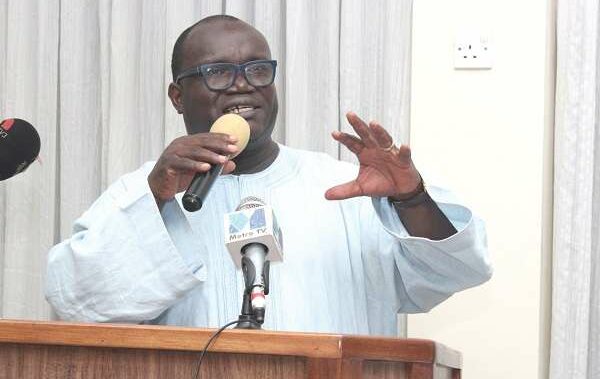The Ghana Coalition Against Galamsey has expressed concern over what it describes as the government’s insufficient commitment to addressing the illegal mining crisis, commonly known as galamsey.
Speaking at a press conference on Thursday, June 19, 2025, the coalition’s convenor, Kenneth Ashigbey, urged the government to urgently repeal L.I. 2462, the legislative instrument that permits mining in forest reserves. He warned that its continued enforcement poses a significant threat to the country’s environmental sustainability.
“We will not accept an amendment that serves the interests of a few individuals while ignoring the nation’s wellbeing. L.I. 2462 must be revoked and with urgency,” Ashigbey declared.
Despite ongoing campaigns, illegal mining continues to cause widespread destruction, leaving water bodies polluted and forest reserves depleted.
In a push to ensure accountability, the coalition is also demanding a full investigation and prosecution of politically exposed persons suspected to be involved in or enabling galamsey operations.
Ashigbey referenced the Akomfere confrontation, where police officers allegedly shielded Chinese nationals engaged in galamsey. He described the incident as not only a sign of complicity among law enforcement agencies but also a disgrace to national security institutions that appear to favour foreigners committing environmental crimes.
“We demand an immediate and transparent investigation into this incident. All complicit officers from the district to regional command must be interdicted and prosecuted,” he insisted.
The coalition further called on the government to abandon any attempts to justify illegal mining on grounds of unemployment or revenue generation.
“The government must intensify its efforts in combating galamsey. There is absolutely no reason why we are failing at this,” Ashigbey added.
In support of the movement, Senyo Hosi, Convenor of the One Ghana Movement, urged citizens to rise up and protect Ghana’s natural resources, framing the fight against galamsey as a shared national responsibility.













